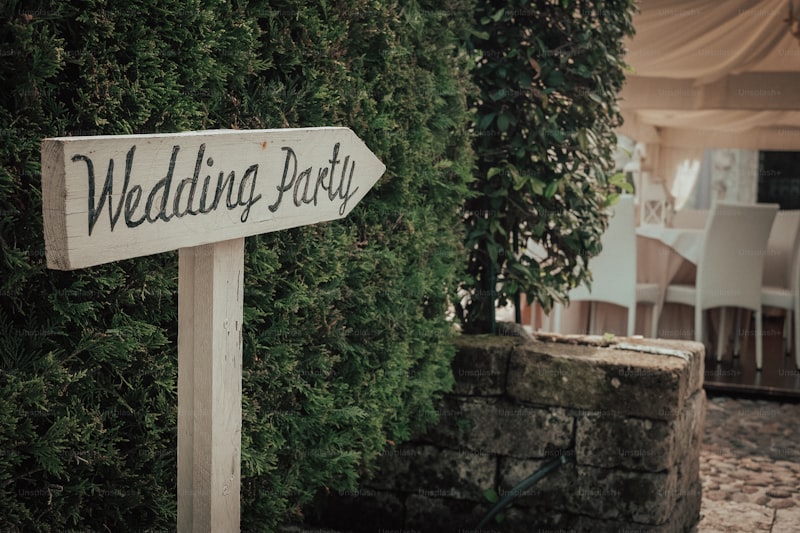Cultural Heritage Inspiration for Elopement: A Journey into Unique Love Stories
Embracing Cultural Heritage in Elopement Ceremonies
Elopement, traditionally viewed as a romantic getaway for couples who want to tie the knot away from the hustle and bustle of a large wedding, has evolved into a deeply personal event that many couples are now infusing with rich cultural heritage. This article delves into the various ways couples can draw inspiration from their roots and traditions to create memorable elopement experiences that reflect their love stories.
The Rising Trend of Elopements
Over the last few years, elopements have gained popularity as couples seek more intimate, meaningful, and affordable ways to celebrate their love. Whether in breathtaking natural landscapes or cozy urban settings, elopements allow couples the freedom to express their personalities and cultural backgrounds.
Exploring Cultural Heritage
Cultural heritage encompasses the traditions, practices, languages, and artifacts that define a community or nation. Couples today are increasingly incorporating these elements into their elopement ceremonies, paying homage to their backgrounds while creating unique experiences. Here are a few ways this can be accomplished:
1. Traditional Attire
One impactful way to embrace cultural heritage is through clothing. Couples can honor their ancestors by wearing traditional outfits during their elopement. For instance:
| Culture | Traditional Attire |
| Indian | Lehenga for brides; Sherwani for grooms |
| Scottish | Kilt for grooms; Tartan patterns for bridesmaids |
| Japanese | Kimono for brides; Hakama for grooms |
| Mexican | Traditional dresses with embroidery; Charro suits for grooms |
By choosing traditional attire, couples pay tribute to their cultures while creating stunning visual memories that can be cherished forever.
2. Meaningful Locations
Choosing a location that holds cultural significance can enhance the elopement experience. Couples can consider places like:
- Historical Landmarks: Get married near iconic sites that reflect your heritage.
- Natural Wonders: Locations that have spiritual significance in your culture add a unique touch.
- Places of Worship: Traditional temples or churches that connect with personal beliefs can serve as beautiful backdrops.

3. Incorporating Rituals and Customs
Many cultures have specific traditions that can be integrated into elopement ceremonies. Here are a few examples:
Western Traditions
Incorporating a tradition like the "first look" or a unity candle ceremony can add emotional depth.
Indian Traditions
Couples might want to include a Sangeet night before their marriage, filled with songs, dance, and celebration.
Scottish Traditions
A Handfasting ceremony where couples tie their hands together can symbolize their union.
It’s essential to research and understand the significance of these customs to respect their origins genuinely.
4. Cultural Cuisine
Food plays a significant role in every culture. For their elopement, couples can offer a menu featuring traditional dishes from their backgrounds. This not only tantalizes the taste buds but also creates an immersive experience for any guests that may join the celebration.
5. Music and Entertainment
Consider incorporating music that resonates with your culture. This can range from traditional songs played during the ceremony to hiring local musicians who specialize in cultural music. If possible, couples can also engage dancers who perform traditional dances, making the event even more memorable.
Popular Cultural Music Examples
- Flamenco for Spanish culture
- Samba for Brazilian celebrations
- Chinese folk music for Asian weddings
6. Incorporating Symbols and Artifacts
Couples can choose to include certain symbols or artifacts that represent their culture within their elopement. Here are a few suggestions:
- Rings: Consider custom-designed wedding bands that reflect cultural motifs.
- Decor: Use traditional textiles and handmade crafts to adorn the venue.
- Blessing Stones: Many cultures have stones that parents or elders bless with good wishes for the couple.
7. Digital Elopement Options
In the age of technology, some couples may wish to elope digitally, particularly in situations where travel is restricted. Utilizing virtual platforms can allow friends and family from across the globe to witness the ceremony. Prioritize cultural elements even through a screen by creating personal videos that share your traditions, attire, and heritage.
Conclusion: Celebrating Love Through Heritage
Elopement ceremonies can serve as a beautiful blend of love stories and cultural heritage. By embracing traditions and infusing them into the elopement, couples create a unique experience that is meaningful and memorable. Whether through attire, location, rituals, or cuisine, celebrating cultural heritage not only honors the past but also sets the foundation for a future filled with love and respect for one another's backgrounds.
As couples plan their elopements, they should consider how elements of their heritage can enrich their ceremony. Remember, the goal is to create an event that feels authentic and resonates with both parties involved. By reflecting on cultural influences, couples can ensure that their love story is remembered, not just by themselves but by their families for generations to come.
For those planning an elopement, ensure to research and consult with family members about traditions that can be honored. Engage local artisans when it comes to attire and cuisine, and most importantly, keep the day focused on your love for each other, celebrating not just a moment in time, but a lifestyle of love woven through heritage.
In conclusion, elopement is not merely about escaping large weddings; instead, it's an opportunity to create a deeply personal and culturally rich experience that reflects the lives of the couple embarking on their new journey together.